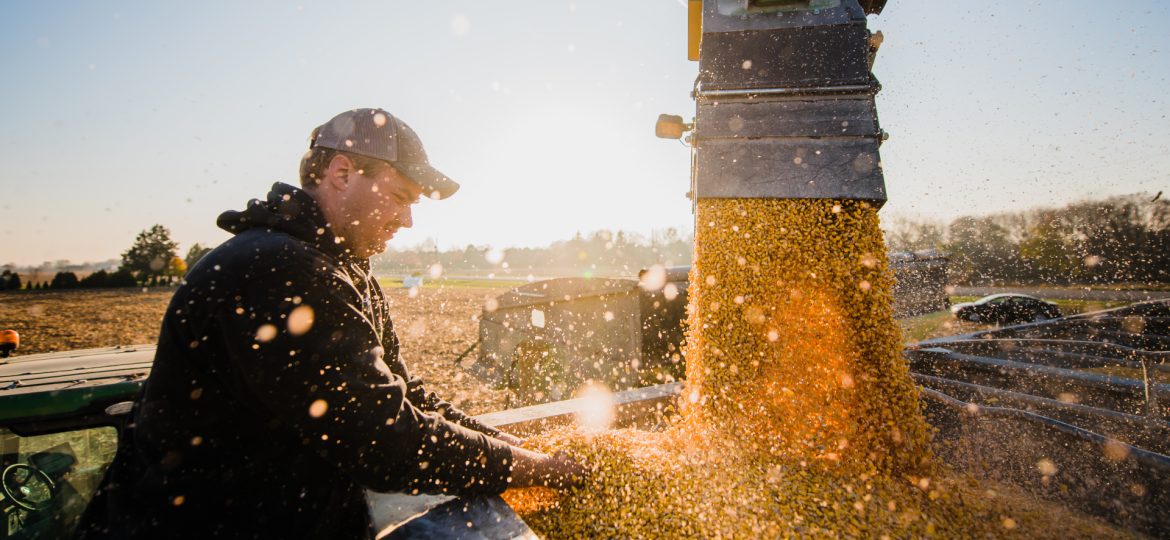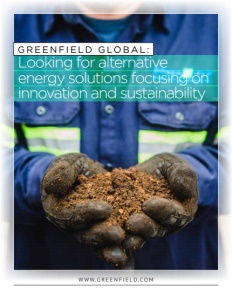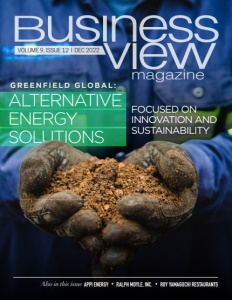Greenfield Global
Looking for alternative energy solutions focusing on innovation and sustainability
Business View Magazine interviews Greenfield Global Jean Roberge EVP & Managing Director, Renewable Energy Division
Greenfield Global is committed to a world where energy is sourced from the ground up, using materials from the earth’s surface to produce renewable fuels like ethanol, bio-methane, and renewable natural gas, and other low-carbon fuels. Investments in innovation, efficiency, and sustainability are top of mind for this progressive company, which continues to find new ways to shrink its own carbon footprint while reducing the carbon intensity of its products. For over three decades, Greenfield has been a leader offering clean-burning alternatives to traditional energy sources and contributing to a healthier planet.
Greenfield was founded in 1989 as an alcohol distillery, producing high-quality alcohol for use in pharmaceuticals, cosmetics, beverages, grain-neutral spirits, and fuel-grade ethanol. Today it operates five distilleries, four manufacturing and packaging plants, and three R&D centers focused on bio-jet and other advanced biofuels. The company has grown to become one of the largest manufacturers and distributors of fuel ethanol, industrial alcohol, and alcohol-related products in North America.
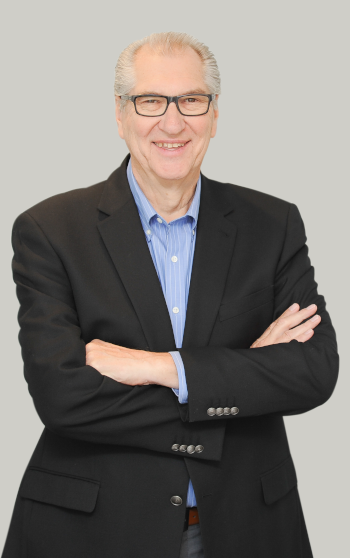
Jean Roberge, EVP & Managing Director
Jean Roberge, EVP & Managing Director of the company’s renewable energy division shares, “Greenfield has truly been a leading pioneer of the renewable fuels industry in Canada. We are the largest producer of fuel-grade ethanol in Canada and have begun to diversify our energy portfolio with the production of renewable natural gas.”
Across the street from its Varennes ethanol biorefinery, Greenfield Global is working to assist the province of Quebec in its effort to divert organic waste from landfills. Greenfield developed an anaerobic digestion (AD) project with three regional municipalities, representing about 270,000 residents, to divert 40,000 tons of organic waste per year to produce biogas and biofertilizer. This is a first-in-kind project in North America.
Through its wholly owned subsidiary EG Biogaz, Greenfield is the developer and operator
of the anaerobic digester. As Roberge explains, “We collect organic materials from homes, restaurants, renderers, and food processing plants, and take them to our AD plant. The biogas is then used by Greenfield’s ethanol plant across the road to displace four million cubic meters of natural gas per year. The fertilizer is used by farmers replacing 10,000 tons of chemical fertilizers.”
In its first phase, the AD plant treated 40,000 tons of source-sorted organics per year, and a recent expansion has brought the capacity up to 120,000 tons annually. “This project started a year ago and we are now in the process of running at full capacity. With the expansion, we are purifying the additional biogas into pipeline-quality renewable natural gas (RNG) for injection into the local energy grid.
With the experience and learnings Greenfield Global has gained from this venture, Roberge believes the company is capable of taking on any anaerobic digestion project, bringing it every step of the way, from initial concept to full operation: “Our knowledge and experience is unique. This is a model that we can replicate across the country and beyond.” Unable to share specifics, he also acknowledges that Greenfield Global is working on three other projects with a similar business model. Roberge maintains Greenfields’ direct involvement and expertise throughout the entirety of a project is their strength.
“We prefer to collaborate closely with our clients to properly scope out a project and ensure we all have a full and mutual understanding not only of all the technicalities it entails, but of the logistics and operational considerations of running an organic waste collection system. So, we start from scratch and then successfully bring the project up to fruition. We are involved every step of the way, right from the first conversation.”
Currently, the company’s anaerobic digestion efforts are focused on Quebec, although Roberge says Greenfield Global is always thinking globally. He relays, “We focused on Quebec first because we had the right set of circumstances. The province had announced their intention to ban organic waste in landfills, there was a political will, government programs that provided access to financial incentives and willing participating municipalities with immediate access to organic waste. We do have projects in development in Ontario, so we are not limited to Quebec or Ontario, or even Canada.” He admits that although the idea of anaerobic digestion as a source of RNG is appealing, it does come with challenges.
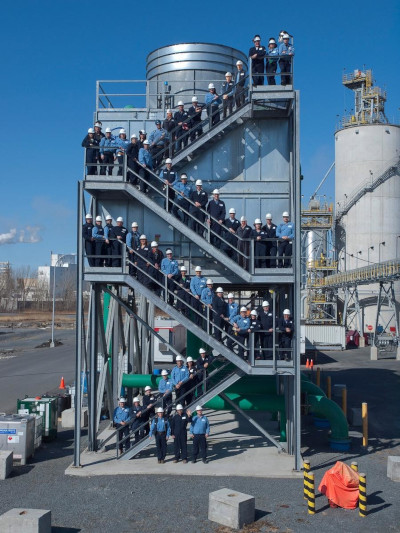 “Projects like this seem attractive because people know there is a lot of waste but getting your access to that waste is not always that easy. For example, it costs a lot less for a municipality to divert organic waste to a landfill than it is to transport it to a plant unless there are government policies, and regulations or financial incentives for landfill diversion or even an outright ban of organic waste in landfills,” Roberge shares.
“Projects like this seem attractive because people know there is a lot of waste but getting your access to that waste is not always that easy. For example, it costs a lot less for a municipality to divert organic waste to a landfill than it is to transport it to a plant unless there are government policies, and regulations or financial incentives for landfill diversion or even an outright ban of organic waste in landfills,” Roberge shares.
“This is why the business model we have in place in Quebec is successful; it includes the involvement and support of the municipalities themselves. There is no third party except for the waste collection companies who are contracted to collect the curbside organic waste through the municipally funded brown bin program.”
Another concern in the processing of organic waste is dealing with contaminants, such as plastic bags, glass bottles or metal items that can end up in the brown bins. Occasionally the process operators see some unusual things bouncing along the conveyer that are collect for our ‘Digester Hall of Fame’. “We’re seen some pretty interesting items and the plant and its equipment can remove the contaminants, but the more contaminants you get, the less efficient the plant becomes and the harder the equipment must work. It is a constant challenge that needs to be managed” Roberge asserts.
But despite all challenges, in the end, the project is a success. “We feel that a large part of our success is due to our modified Engineering, Procurement and Construction Management (EPCM) approach to project execution. That means we control the engineering and procurement, we oversee construction management, and all the accounting and project management stays in house. This is a central part of our expertise, and it allows us to fully define project scope, vet and qualify technology suppliers, while continuously managing the risks of delays or cost-overruns,” says Roberge.
Working with experienced and reliable suppliers and subcontractors is another key to Greenfield Global’s achievements. Acknowledging an important distinction between price and cost, Roberge shares, “Sometimes you are better off working with reliable suppliers that you know and trust. It’s more expensive at the beginning, but in the end, the product will be reliable, and will reduce the need for expensive retrofits over the life of the facility.” Highlighting again the company’s deep involvement in projects, he says, “The way we tackle projects has been unconventional. We put the right expertise in place, and we retain full project control from the very beginning to the very end. And this has been our approach for over 20 years.”
Greenfield’s ethanol plant at Varennes presently produces about 200 million liters of fuel ethanol each year with the lowest carbon-intensity score available in Canada. Co-products from ethanol production include distiller’s grains (used as a high protein animal feed), distillers corn oil (used as a feedstock for renewable diesel), and biogenic carbon dioxide (used for beverage carbonation and freezing applications). As for future plans, Roberge reports, “we are planning a major expansion and carbon-optimization of our ethanol plant that will increase annual production by 50% while further reducing the carbon intensity of production through installation of electric boilers and other energy efficiency advances. As well, we are developing a hydrogen hub at Varennes. Phase 1 of this multi-year project will incorporate a hydrogen production plant scaled at 60-megawatts using proton exchange membrane technology. We will combine that hydrogen with biogenic Co2 from our ethanol fermentation process to produce a near-zero carbon methanol which will be directed for use by the marine industry to help them with their decarbonization efforts. Looking further ahead, the future availability of green hydrogen, oxygen, and Co2 from our biorefinery complex, will open opportunities to explore additional green innovations, such as sustainable aviation fuel,” Roberge adds.
In summary, he offers, “In every project that we consider, our top priorities are sustainability, energy efficiency and greenhouse gas reduction. Whether it’s with our fuel ethanol or renewable natural gas today or green methanol and green hydrogen in the future. This our focus as we consider and commit to decarbonization projects to meet our company’s mission to unlock the potential of people, partnerships, and nature to accelerate sustainable solutions for the health of the planet.”
AT A GLANCE
Greenfield Global
What: A leading producer of high-value, mission-critical raw materials, ingredients, and additives that are vital to businesses and integral to a lower-carbon economy.
Where: Renewable Energy Division, Varennes, Quebec
Website: www.greenfield.com
PREFERRED VENDORS
Novozymes North America Inc. – www.novozymes.com
Novozymes and Greenfield Global
Partnering for environmentally friendly, sustainable business solutions
As the global leader in biotechnology, Novozymes works with bioenergy producers worldwide to lead the way for a more sustainable and diversified generation of biofuel plants. Our solutions help our partners boost production yields and profitability while lessening their environmental impact, lowering their carbon footprint, and reducing chemical and water use.
Greenfield Global, Canada’s largest ethanol producer, partners regularly with Novozymes to evaluate new industrial biological solutions to increase plant efficiency and improve plant sustainability. Recent results of the partnership have led to the release of Novozymes yeast strains in Canada, but most importantly Greenfield Global is able to reach industry-leading production efficiency targets for energy and chemical reduction, enhanced starch conversion, production reliability, and ethanol yields.
“We believe in decarbonizing the world today. And doing so demands innovation, operational excellence, and the ability to adapt quickly when required. These are characteristics and abilities that Greenfield and Novozymes have in common.”
-Jean Roberge
E.V.P and Managing Director, Greenfield Global
With continued excellence in sustainable energy production, Greenfield and Novozymes regularly evaluate and commercialize novel technology, converting traditional carbon streams and waste carbon streams to higher-value energy products.
Lallemand Biofuels & Distilled Spirits – www.lbds.com
Founded at the end of the 19th century, Lallemand is a global leader in the development, production and marketing of yeast, bacteria and specialty ingredients. Lallemand provides microbiological solutions for dozens of different industries, from human and animal health and nutrition to baking, oenology, brewing, food ingredients, probiotics, and biofuels.
Brenntag Canada Inc. – www.brenntag.com
Ascent Aviation Services is one of the largest aircraft MRO operations in the world providing fully integrated aviation maintenance of widebody, narrowbody, and regional aircraft. Ascent is a Class IV 14 CFR Part 145 certified Repair Station operating three maintenance facilities located in southern Arizona and New Mexico. www.ascentmro.com
